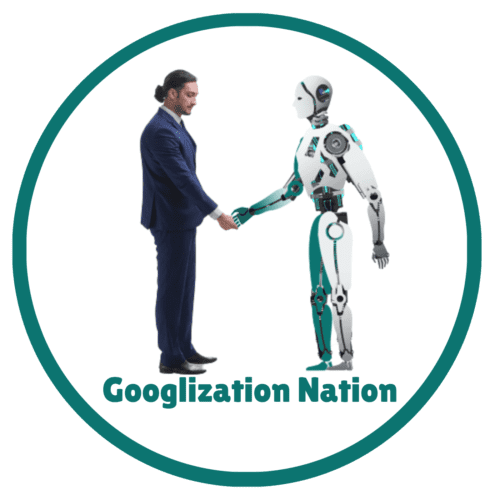Creating a Culture of Caring | Employee Well Being
An Interview with Derek Lundsten
WHAT TO EXPECT
It’s easy to feel alone when facing a new challenge. But, no matter how crazy or difficult a challenge might seem, there is someone who has been there before. And, with the right training and opportunity, they can be there to help you, too.
This is where Life Guides comes in. Inspired by the functionality of Match.com, Derek Lundsten and his team decided to create a platform to connect people with guides to navigate life. This service works to give people-centered leaders a tool to support their employees, no matter how many they may have.
Founded on the simple idea that workplaces need to establish a culture of caring, this platform gives employees a way to reach out whenever they need help. Not only that, but Life Guides also keeps improving with every conversation, learning from user experiences to maximize how much members and guides can get out of conversations.
SEGMENT #1 – DEREK LUNDSTEN
If you had never felt like you were facing a challenge that no one else has seen before, this year likely changed your mind. People across the country have been navigating uncharted waters, but no matter your situation, there is someone who has been there. The hard part? Finding them.
Derek Lundsten is trying to bridge this gap by connecting people with guides to help them through life’s challenges. Based on the idea that anyone can help out another person with empathy, Life Guides gives employers a platform to help their employees connect with real people who have the wisdom to share to help them navigate any challenge.
SEGMENT #2 – AHEAD OF THE CURVE with Joyce Gioia
Today on Ahead of the Curve, Joyce delivers Part 2 of her 2021 Forecast.
LISTEN, WATCH, SUBSCRIBE
Quotes
[8:45] “It’s about recognizing we all go through life, we all have challenges, we all have opportunities to grow, and for someone who is going through an experience, typically there is someone, or many people, who has been through the same or something very similar.”
[9:38] “We as business leaders have an opportunity and a responsibility to make sure our people are being considered and taken care of.”
[16:35] “People are people at work, and people are people at home. Oftentimes the challenges that people bring to work affect their ability to be fully present and perform, and the challenges they manage at work affect how they can show up for their families.”
[18:57] “We have to care about the people that we are leading, that we are serving, that we are working with.”
[21:25] “Empathy does start with understanding. It starts with putting yourself in the other person’s position.”
[22:57] “This is beyond just the human connection, this is about creating a more connected and a more informed populace.”
Podcast Notes
Life Guides [8:40]
[9:38] “We as business leaders have an opportunity and a responsibility to make sure our people are being considered and taken care of.”
For any situation in life, there is someone who has been through it before who has learned how to handle it. They have developed relationships, strategies, and techniques to respond to it through firsthand experience. Life Guides gives people the technology to connect and share wisdom.
Now more than ever, it is the responsibility of business leaders to make sure that employees are taken care of. This requires empathy, seeing things from another person’s perspective. This is what connects as, both as colleagues and as communities.
Life Guides gives employers a platform to help employees connect and work through professional and personal issues together. Once connected, employees can follow up with each other in a variety of ways and not only get help, but build stronger relationships and, therefore, a stronger workplace.
Workplace Matchmaking [13:29]
[16:35] “People are people at work, and people are people at home. Oftentimes the challenges that people bring to work affect their ability to be fully present and perform, and the challenges they manage at work affect how they can show up for their families.”
Making the right matches is the key to Life Guides, and they use the “opposite of artificial intelligence” to do it. On one side of the equation are guides, who have had challenging experiences they want to share about. They are then vetted and trained on how to be effective guides.
Then, members, who are usually employees of the organization who has purchased access to the platform, can get on and start looking for a guide that meets their needs. They just put in what challenge they are facing and give information about their career, stage in life, demographics, and some other data points, and are then intentionally matched with a guide to help them.
This depends on employers realizing that people are people at work and they are people at home. As the pandemic has made terribly clear, the boundary between home and work is porous, and people freely take their problems back and forth. Embracing this reality can help employers support their employees better, leading to happier employees and better outcomes.
Creating a Culture of Caring [18:12]
[18:57] “We have to care about the people that we are leading, that we are serving, that we are working with.”
The universality of video calls and working from home has torn down the separation between work life and home life for many people. Kids are a regular part of meetings and pets make many unscheduled appearances, which makes it impossible to ignore that the person on the other side of the screen is a whole, complete person.
This means that we have to care in this moment, now more than ever. Not only that, but it is incumbent upon leaders to actively create a culture of caring. That is the central part of moving past the pandemic and recovering from it stronger than we were before.
Cultivating caring empathy must start with understanding and communication. Life Guides rates every conversation with this reality in mind to help better understand what creates effective and impactful conversations, and how to build on that in the future. In every interaction, they learn more about what empathy looks like to different people and how to better create those connections.
Measuring Empathy [24:04]
Every interaction on Life Guides is measured. But measuring things like empathy or understanding can be tricky business. Some technologies like facial recognition are not used to protect anonymity, biometrics may be incorporated in the future.
They are at the beginning of learning how to measure these conversations, but for now they rely on the experiences of members and guides. Conversations themselves are rated and tracked, as well as impact on participants. Though this is not yet perfect, it is a reliable mechanism to give insight into how well the service works.
Who is Life Guides for? [25:53]
Whenever an executive or leader gets to the point where people are coming to them with challenges that they are unequipped to handle, it is time to give Life Guides a try. And in this moment, that is becoming much more common. The best leaders will recognize where they have answers and where they don’t, then seek help for getting the answers they need.
The easy, intuitive solution is to just reach out and get connected with people who do have the answers. Then, rather than having to learn about certain challenges themselves or provide support for each employee, leaders can connect employees with experienced guides who can provide personalized help for everyone.
Investing in Life Guides not only takes a burden off of leaders who care about their people, it gives employees an opportunity to connect individually with someone who can empathize with them. What’s even better is that their software will continue to improve with each new user and each new conversation.
Life Guides’ pricing is simple: $4 per employee, per month–which includes every adult member of that employee’s household. This makes it a great fit for any sized company. Life Guides also works with leadership at companies to develop a custom communication plan to let employees know that the service is available and what they can get from it.
Ahead of the Curve: Normal 2.0 [36:30]
We are steadily moving into the future, no matter how different it may look, and this week, Joyce has a few new trends she sees guiding us into the future.
First of all, diversity and inclusion will be more important than ever. The Black Lives Matter movement has helped us raise our consciousness (if we were paying attention), and we see more clearly now than ever before a deep need to address systemic racism.
For the younger generations in particular, addressing racial justice is not optional. If they don’t already, every major organization will have to concern themselves with matters of racial justice. Refusing to do so will make them miss out on top talent.
Another emerging trend is the role of big data in HR. The more efficiently and effectively we can engage and recruit our employees, the more profit gets driven to the bottom line. This means greater investment in employee and customer experience as well.
Third, wise companies will use technology to stay connected, even internally. This can open many doors, including instantly recognizing employees for a job well done. No need to rely on performance reviews alone when you can send quick messages straight to employees at any time!
Fourth, learning communities are going to enter the workplace in a big way. Organizations are looking for more one-on-one interactions to impact individuals, which online learning communities are ready to provide.
Next, cafeteria-style benefits are re-emerging (if they ever really went away). This means employees are given a pot of money and allowed to select their own benefits, like insurance, investments, and so on.
Finally, adaptability is emerging as the most important quality in new talent. Employees’ ability to adapt to an ever-changing landscape is more valuable than ever.
WHERE TO WATCH OR LISTEN
The Geeks, Geezers & Googlization TV Show is live every Wednesday at 1 PM ET on Facebook, YouTube, Talk 4 TV, and broadcast on W4CY Radio, part of Talk 4 Radio on the Talk 4 Media Network. The podcast is also available on Talk 4 Podcasting.
Following the broadcast, the replay will be available at the same links for YouTube and Facebook, our podcast website Geeks Geezers Googlization, and on most podcasts including Apple Podcast, iHeart, Spotify, Amazon, Stitcher and more.







